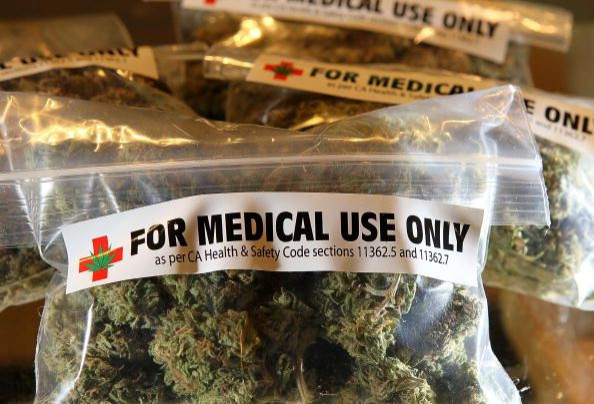Half Of Americans Use Marijuana For Medical Purposes, Study Finds

More and more Americans are using marijuana for medicine. A new study reveals five in 10 Americans (46 percent) that use weed do so to cope with an illness rather than getting high. These users turned to marijuana because they needed help with a medical condition.
In contrast, 22 percent of American weed users say they use marijuana for recreation. Medical marijuana is allowed in 33 U.S. states and the District of Columbia.
"Adults with medical conditions have an increased risk of using marijuana, especially those with respiratory conditions, cancer and depression," Hongying "Daisy" Dai, lead researcher and an associate professor in the College of Public Health at the University of Nebraska Medical Center in Omaha, said.
Dai's research team collected data on more than 169,000 U.S. men and women that took part in a telephone survey in 2016 and 2017. The data from this survey revealed people with medical conditions were more likely to use marijuana compared to those without health problems.
It also showed marijuana use is greater among young adults, especially those with asthma, chronic obstructive pulmonary disease (COPD), arthritis, cancer and depression, than among older people.
Use of medical marijuana ranged from 25 percent among 18- to 24-year-olds to 2 percent of those 65 and older. Daily pot smoking also decreased with age. This went from 11 percent of young adults to fewer than 1 percent of seniors.
Three out of four people surveyed said they smoked marijuana, making smoking by far the most popular method for imbibing weed.
Dai said there's not that much data on pot's usefulness against a variety of health issues. Because of this, "patients who are taking marijuana for a medical condition should be informed of evidence of efficacy and adverse effects for that condition."
Dai also said people that use marijuana recreationally should also be informed of the negative health effects and benefits of marijuana consumption.
Side effects of marijuana use include increased heart rate, nausea, hallucinations, mood changes, blood pressure changes and changes to breathing, memory and concentration.
The study was published online last week in the journal JAMA Network Open.
Published by Medicaldaily.com



























